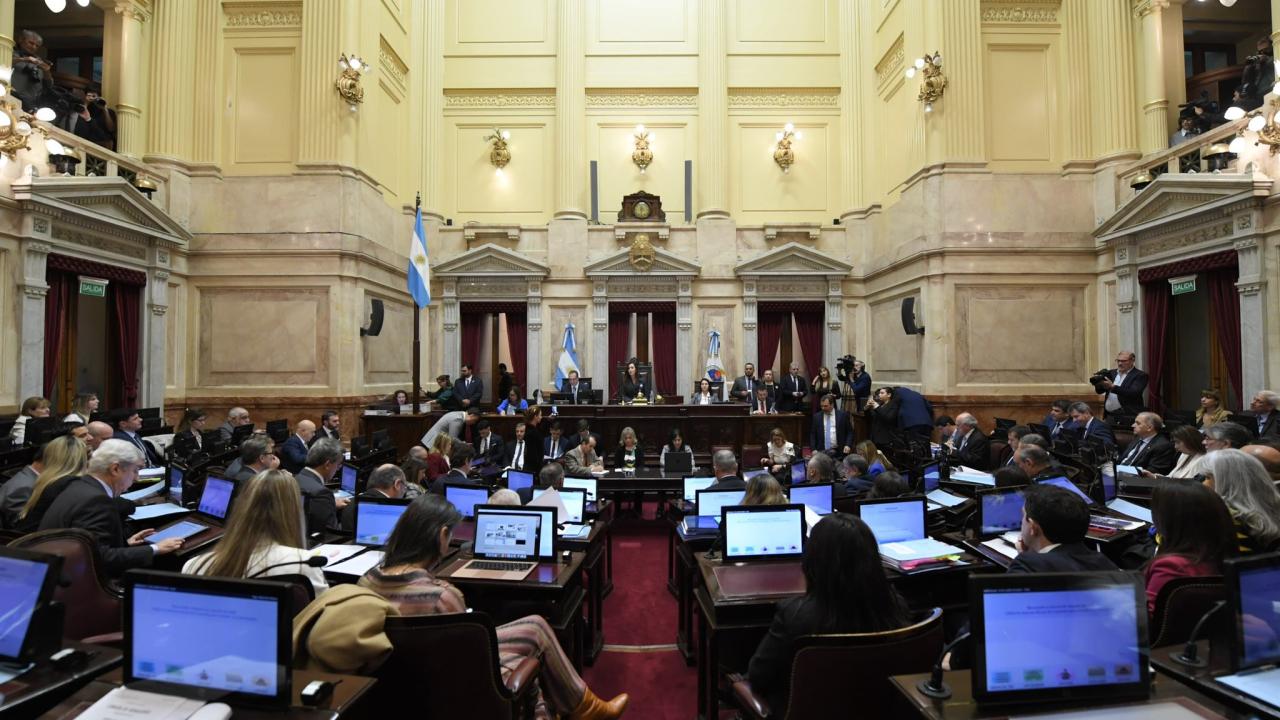
With this sanction, the president gets legislative powers delegated to him for one year, incentives for large investments for 30 years, a relaxation of labor legislation and authorization to privatize a dozen public companies, among other points.
The Congress of Argentina granted President Javier Milei the first legislative victory this Friday morning by approving his package of economic reforms, although limited with respect to the original version after months of debates.
"The Office of the President of the Argentine Republic celebrates the approval of the Law of Bases and Starting Points for the Freedom of Argentines," published the official account of the presidency in X.
The Chamber of Deputies debated from local noon the modifications introduced by the Senate to the so-called 'Bases Law' and finally resolved, by 148 votes to 107, to sanction the norm including those changes.
However, he maintained the original version of the tax reform package, which includes the restoration of the income tax that reaches salaries.
With this sanction, the president gets legislative powers delegated to him for one year, incentives for large investments for 30 years, a relaxation of labor legislation and authorization to privatize a dozen public companies, among other points.
"We are going to give President Milei's government the tools so that it can reform the State once and for all," said the head of the ruling bloc Gabriel Bornoroni in his closing speech.
The reform package achieved its final sanction after a tortuous process that returned it to the Lower House as the review body for the modifications.
"The national government achieved the approval of the first law towards the free and prosperous country that Argentines chose," says the presidential statement.
Politically, the approval means "a total success for the Government," political scientist and economist Pablo Tigani told AFP.
But economically "it will be a return to the politics of the 1990s with deregulations, privatizations and unconditional opening of the economy that will cause a hard blow to industry and small and medium-sized national companies, with a phenomenal transfer of income to the most concentrated sectors of the economy," he assessed.
"This is a tailor-made suit made for the sectors of power concentrated in Argentina," said Peronist deputy Hugo Yasky in his speech, who considered that the law allows foreign capital "to come and keep the oil and lithium in exchange." you're welcome" and will turn the country into "a tax hideout.
Political scientist Tigani warned that "laws do not mean much when the economic and social situation is explosive."
"I see governability problems and a president in check over the social situation despite having his laws," he explained.
FROM 600 ITEMS TO 238
Argentina, with its economy in recession and inflation at 280% annually as of May, suffered a 5.1% collapse in Gross Domestic Product in the first quarter of this year and has more than half of its population in poverty.
But it also represents new challenges politically, according to analyst Carlos Germano, from the consulting firm Germano y Asociados.
"Getting the first law is of utmost political importance, but the Government now has a new challenge because the dialogue opposition is going to begin to generate another policy totally different from the one of these six months," he said.
This will force Milei "to prioritize management, be much more president and stop promoting the character that allowed him to get here," he said.
Deputy Oscar Agost Carreño, part of an opposition bloc that supported the official initiative, stated in the debate: "We are going to give the government the tools because we believe that it has to solve what they could not until today. Now the excuses are over."
Originally, the 'Bases Law', which Milei launched with pomp as the foundation of his Government plan, contained more than 600 articles, but after a failure in its treatment in February, it was reduced to 238 articles that were also modified in the Senate.
To achieve approval, the Government removed the flag airline Aerolíneas Argentinas, Correo Argentino and Radio y Televisión Argentina (RTA) from the list of companies to be privatized, which controls Public TV and National Radio.
The Government also sacrificed a reform in the pension system that involved eliminating a moratorium that benefits those who, upon reaching retirement age, cannot prove 30 years of contributions, in a country with almost half of the workers in the informal sector.
The surroundings of Congress were fenced off to prevent protests and incidents, such as those that occurred during the debate in the Senate two weeks ago, although this time there were no large demonstrations in front of the premises.
The Executive must promulgate the law for it to come into force, but can also veto it in whole or in part.









